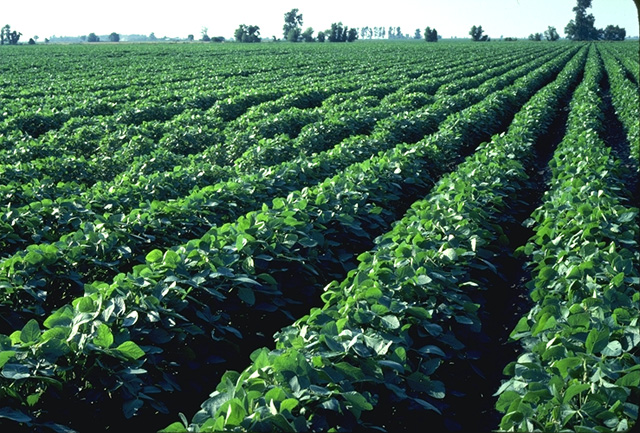Nov 05 2020
Crop Yield with Higher CO2
 One of the arguments often put forward by global warming deniers is that CO2 is not a pollutant, and in fact higher CO2 is good for crop yield. This point is invoked during their shifting defense – the planet is not warming; well, OK, it’s warming but it’s not due to humans; alright, humans are to blame but this won’t necessarily be a bad thing. See – CO2 is good for plants.
One of the arguments often put forward by global warming deniers is that CO2 is not a pollutant, and in fact higher CO2 is good for crop yield. This point is invoked during their shifting defense – the planet is not warming; well, OK, it’s warming but it’s not due to humans; alright, humans are to blame but this won’t necessarily be a bad thing. See – CO2 is good for plants.
While this core claim is somewhat true, it needs to be put into perspective. First, as a risk vs benefit, raising global CO2, with all the downstream negative effects, is a terrible way to increase crop yield. But a new study looks at 30 years of data to address the underlying premise – what is the net effect of rising CO2 levels on crop production? The short answer is, while some crops increase yield, the overall effect is complicated.
The first distinction we need to make is between C3 and C4 crops, which refers to the type of photosynthesis used. In the C4 pathway some of the energy is used to concentrate CO2 in the chloroplasts, resulting in a higher efficiency of turning light into energy. C4 plants include corn and sugarcane. For these crops there is no benefit in yield from higher CO2 levels. C3 plants do not have this adaptation and they are more dependent on ambient CO2 levels, and they do benefit from higher CO2. But there are some important caveats to this.
What the study showed is that the overall average increase in yield among C3 crops to rising CO2 in the last 30 years is 18% “under non-stress conditions”. That last bit is important because that increase is significantly reduced if there is not enough nitrogen available to take advantage of the higher CO2, which is the case in most of the non-industrialized world. Further, the rising temperature that accompanies the higher CO2 decreases the yield, and also increases loss to pests. Wet conditions, which are also important for yield, reduce the benefit from CO2, however, which is greatest under drought conditions. So overall there has been a modest increase in yield in some crops in industrialized farming where increased nitrogen if available.
What will happen with increasing CO2 and temperature? Extrapolating out the trends from the last 30 years does not look good:
“The anticipated 2° C rise in temperature, caused primarily by this increase in CO2, could halve yields of some of our major crops, wiping out any gain from CO2.”
We may be near the “sweet spot” for CO2 right now in terms of crop yields, with further increase having a net negative effect. In fact without any further increase in CO2 temperatures will still rise until an equilibrium point is reached, and this may erase any benefits from the CO2 itself. The study further found that the content of some nutrients was decreased in the higher CO2 condition.
We also have to consider the impacts of this on developing new cultivars. First it is important to note that there are efforts underway to reverse engineer the C4 pathway in hopes of creating GM crops, such as rice and wheat, that are C4. If this is the case this would significantly increase the yield of our major crops, but also obviate any benefit from rising atmospheric CO2. On the other hand, we can cultivate crops that are better adapted to the higher CO2 and higher temperatures. This could mitigate the negative effects on crop yield and quality, while taking maximal advantage of the higher CO2.
While this strategy may become necessary to adapt our crops to a changing climate, this is not an ideal approach and would never be deliberately chosen. We are essentially in a race against time. Cultivated crops takes time, as does genetic engineering. Racing the climate change clock, which is a moving target, may be a losing strategy. The need to adapt crops to the environment may also displace efforts to cultivate other qualities in crops. This makes it hard to calculate the net effect, but overall this is a problematic strategy we would never choose but is being forced upon us.
Changing in the crops themselves also does not factor in the shifting growing seasons and optimal locations. It is not easy task to simply shift farmland farther away from the equator to track with optimal growing climate. There simply may not be enough arable land where the optimal growing climate is shifting to.
In short, the notion that higher crop yields is a net positive of increasing CO2 that offsets any negative effects is an extremely weak argument. While some crops under some conditions do benefit, overall this is adding a massive stress to the farming infrastructure. We will also need a major effort to shift our efforts to cultivating and developing crops to adapt to the changing climate. Further, if we are successful in developing C4 crops, which have a greater advantage to yield than higher CO2, this would eliminate any benefit from the higher CO2.






